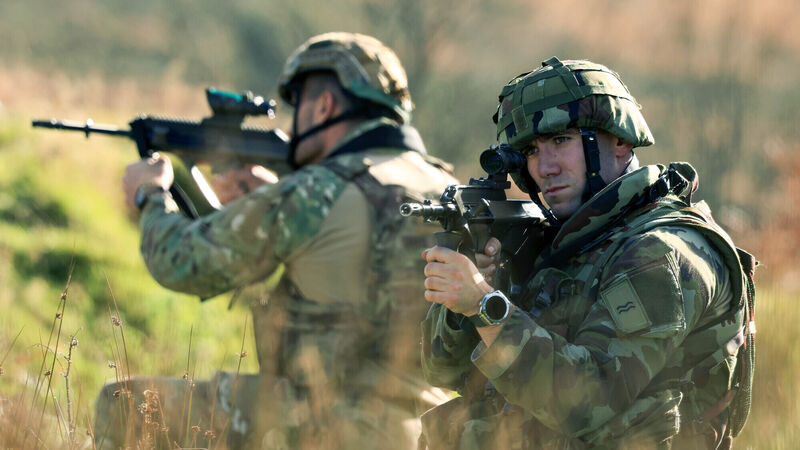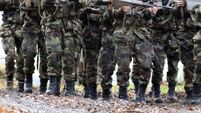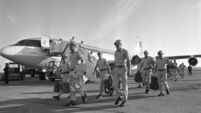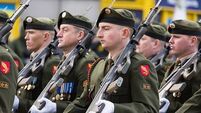Dorcha Lee: What the end of Unifil means for Lebanon and for Ireland's Defence Forces

The 127th Infantry Battalion on an exercise at the Glen of Imaal as 350 Defence Forces personnel prepare to ship out to Lebanon — one of the last such deployments, as the Unifil mission will end by 2027. Picture: Colin Keegan/Collins
No more red sunsets in the southern hills of Lebanon for our peacekeepers.
No more shouts of ‘groundhog’ to warn of incoming shells impacting close to the whitewashed walls of the Irish compounds.
















